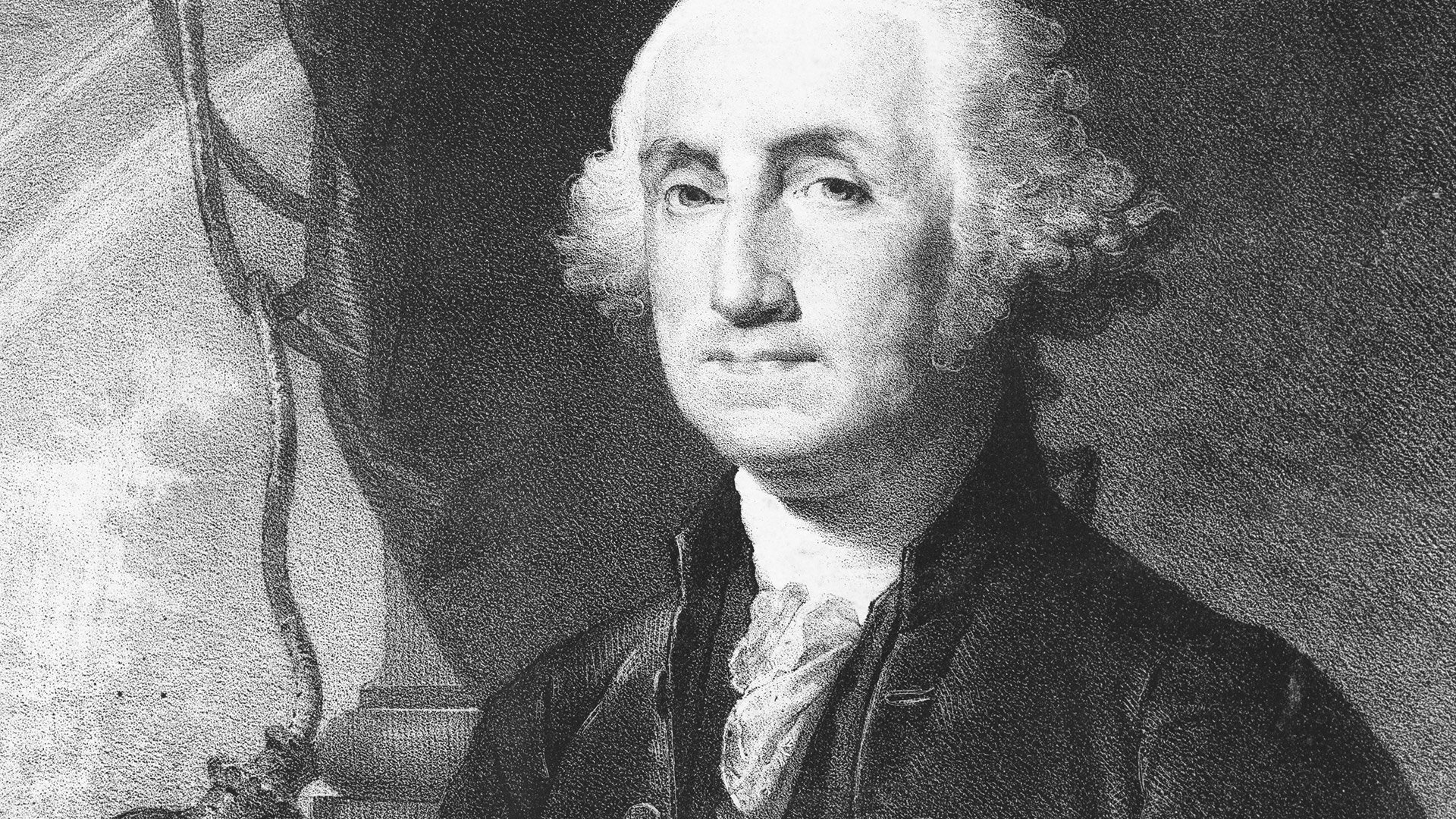Love, love, love...
Love is in the air. Yes, Valentine’s Day was yesterday, but the feelings of love should linger on.
You may have heard me say that I have a rather simple philosophy of life. Here it is:
Love God. Love people.
I base that on Jesus’ words when asked what the most important commandment was. Remember?
You must love the Lord your God with all your heart, all your soul, and all your mind. This is the first and greatest commandment. A second is equally important: Love your neighbor as yourself. Matthew 22:37-39 NLT
There is also a third “love” that I live by. I love life! God has richly blessed me with a wonderful wife (over 53 years of that blessing...and counting), a wonderful family of kids, grandkids, extended family, and many great friends from all walks and lands. And our ministry takes me to countries all over the world to be with people I love...to help them share the love of Christ in effective ways, so that others will come to know of God’s love for them. Love.
That’s not to say that everything in my life has always been, as we say, “peaches and cream.” There have been hardships, struggles, health issues, financial needs, at times broken relationships, misunderstandings...the list could go on and on. But all that is overridden by the love and blessings that God has poured out on me.
No...that is not exactly right. The blessings sometimes have been enhanced by the struggles of life. Have you ever experienced a terrible storm in the night? Lightning. Thunder. Pouring rain. You think it will never end. Then comes the morning.
As the sun breaks through the clouds, there is a sense of exhilaration that would not be there were it not for the storms you have just come through. In fact, you might have missed the beauty of the sunrise if the storms had not raged.
Andrew Murray, a South African pastor in the late 1800s, wrote about the value of difficulties.
“Have you ever noticed what part difficulties play in our natural lives? They call out man’s powers as nothing else can, strengthening and ennobling character. ...it is in the mastering of difficulties that our highest attainments come.”
At a critical time in the apostle Peter’s life, after he had denied even knowing Jesus, the Lord tenderly asked Peter, “Do you love me?”
Paul the Apostle would tell the Corinthians and the Philippians of his love for them. And then he followed up that declaration with this admonition.
I pray that your love will overflow more and more, and that you will keep on growing in knowledge and understanding.
Philippians 1:9 NLT
Love.
It isn’t just for Valentine’s Day. It’s not just about greeting cards, candy, and flowers...though those things can be important. It is about relating to God and those He has placed around you and me in the same way our Lord relates to us...through His love.
By the way...I hope you don’t mind me saying this. Because of the Lord’s sacrificial love for me, I can proclaim this from my heart.
I love you!
Talk is cheap!
There is probably a comparable saying in many countries to what we say in the U.S.... “Talk is cheap!” That phrase can take on meaning at various levels. It may mean that it is easy to say something, hard to do it or live it. It could mean that “much speaking” is not necessarily a virtue. And while we are communicators, we need to choose our words carefully.
Valerie Geller has been part of our MEDIAlliance Institute. She travels the world teaching communication principles to broadcasters. Her book, Beyond Powerful Radio has become a classic, and has wisdom for all in the media field. In fact, the subtitle to that book is A Communicator’s Guide to the Internet Age. I have drawn wisdom from it for courses and seminars I teach for years.
In a section called Avoid Useless Chatter, Geller says, “Just because you can say something doesn’t mean you should.” And she says this applies no matter what medium you are using, radio, television, or social media. Wow. Half or more of Facebook and Twitter might disappear if people took this to heart. My posts included!
Valerie Geller also quotes air personality Turi Tyder who says, “Think of all the available content as crude oil. There may be a lot of it, but it’s no good to you unless it’s refined.” One of your roles as a communicator is to take raw material and refine it for the audience. Your role is not to just replicate what you hear or read. Many have been caught on the internet passing on “fake news” because it sounded good, only to (hopefully) retract it when the false story was discovered.
Our communications need focus. We need to know our topic and the point we are trying to make. We need to be aware of the “brand” we are building. People associate what they see, hear, and experience with a person, a station, a blog, or even a product. Most of us have been disappointed when we purchased a consumer item based on the brand, and discovered that the brand had produced a low-cost, inferior product. Just because they could do that, should they have done it? Not if it costs them their reputation.
The Bible even addresses this topic. Solomon was pretty direct in his writings in the Old Testament book of Ecclesiastes.
...too many words make you a fool.
Ecclesiastes 5:3 NLT
Sometimes we can improve our communication process by simply finding the “off-ramp.” Exiting the conversation in a timely way. We may make a solid point, then continue to ramble on with the result that the good point is lost in our many words. Use your words carefully and communicate truth in a clear and powerful way. That will have the greatest impact for your audience.
I don’t like networking!
There. I’ve said it. I don’t like networking. The term emerged a few decades ago as a business tool for people to grow their own business or organization by exchanging ideas, business cards, and other pertinent information. If you look on the internet, here’s what comes up for a definition.
…the action or process of interacting with others to exchange information and develop professional or social contacts.
There are network meetings whose sole purpose is for businesspeople to get together to...yes...network. More casually, folks at social gatherings come prepared with business cards and make it their purpose to get with almost everyone there and share what they do and “how happy they would be to work together.”
A few years ago, the Harvard Business Review wrote on networking. While they were promoting it as a legitimate way to grow a person’s business, they had to admit many people are like me...they don’t like it.
“I hate networking.” We hear this all the time from executives, other professionals, and MBA students. They tell us that networking makes them feel uncomfortable and phony—even dirty.
That’s why it was refreshing to see Jon Gordon, noted author and speaker on the topics of leadership, culture, sales, and teamwork, say, “Don’t be a networker.” He went on to list things you should be doing to build up those around you.
1. Add value to people’s lives.
2. Lead with love, not an agenda.
3. Find ways to serve.
4. Show you care.
5. Encourage others.
6. Look to give instead of receive.
7. Connect people.
You can almost hear the words of Jesus in these points. Think of others ahead of yourself. Love your neighbor. And, as the Apostle Paul told the believers in Thessalonica,
"So encourage each other and build each other up, just as you are already doing." - 1 Thessalonians 5:11 NLT
Ken Blanchard, author of The One Minute Manager and Lead Like Jesus, wrote the forward to one of Jon Gordon’s books, The Carpenter. In it, Blanchard underscores the philosophy that Gordon expressed in his books, speeches, and motivational coaching.
“... shift your focus from ‘winning’—whatever that means to you—to using your business to love, serve, and build up others. If you do this, you will succeed, and your business will grow in ways you never imagined.”
As I look at the list above, I am encouraged that the Lord has led us to build MEDIAlliance in a way that embraces those seven points. And God has blessed beyond expectations and measure.
Let me encourage you for the next seven weeks to take one of these items from Jon Gordon’s list, look up scripture that applies to it, and then make that your leadership focus for the week. At the end of that time you will very likely see a difference in your ministry or organization as well as in you as a leader.
Definition: Optimist
What's the definition of an optimist?
Optimist: A person who thought January 1, 2021 would mean the challenges of 2020 would be over.
Sorry. Flipping the calendar over or hanging a new one on the wall doesn’t dramatically change things. But the new year can be different and filled with optimism.
My friend Dr. Jim Denison says we Christians should always be looking into the future with an optimistic sense of hope.
“Christians have better cause for optimism. God's word describes our faith as ‘the assurance of things hoped for, the conviction of things not seen’ (Hebrews 11:1). According to Scripture, our hope is based not on our attitude but on God's actions and character. We are people of ‘radical optimism’ because of our radical faith in a God whose love and power give us rock-solid reasons for hope.”
Look around you. See the ways God is working...in you, in your family, in your country and your culture. The pandemic of 2020 drove people to media like never before in history. Millions of lives have been changed for all eternity and many millions more are looking and seeking for hope. We who are using these media platforms and tools are seeing God at work like never before. That won’t end in 2021 if we continue to utilize these God-given technologies to tell the timeless story of God’s love for the world.
Throughout the ages great Christian leaders have helped us face new years with more than human optimism and hope. These great men and women have pointed us to the Lord and His promises rather than just looking at the events and circumstances of our day.
“...the object of a new year is not that we should have a new year, but rather that we should have a new soul.”
- G. K. Chesterson
“Your success and happiness lies in you. Resolve to keep happy, and your joy and you shall form an invincible host against difficulties.”
- Helen Keller
“If we build our lives on the solid foundation of Jesus Christ’s eternity-shaping redemptive work, we can be optimists. Why? Because even our most painful experience is but a temporary setback. Our pain and suffering may or may not be relieved in this life, but they will certainly be relieved in the next.”
- Randy Alcorn
“For I know the plans I have for you,” says the Lord. “They are plans for good and not for disaster, to give you a future and a hope.”
- Jeremiah 29:11
What can you and I do to make 2021 a year to remember...for all the right reasons? (We will certainly remember 2020, but not always with fondness.) Here are some suggestions.
1. Seek God’s plans for you, your family, and your ministry.
Remember Solomon’s wisdom and use it as a guide.
Trust in the Lord with all your heart;
do not depend on your own understanding.
Seek his will in all you do,
and he will show you which path to take.Proverbs 3:5-6 NLT
2. Remember that you have God’s full resources to do His will. He has promised to be with you.
In fact, it is the hope of Christ in us that brings us the hope of glory. And we have access to God’s full power to live the life He has for us. Listen to the Apostle Paul’s powerful words.
The Spirit of God, who raised Jesus from the dead, lives in you. And just as God raised Christ Jesus from the dead, he will give life to your mortal bodies by this same Spirit living within you.
Romans 8:11 NLT
And Paul had this word for his young friend Timothy.
I thank Christ Jesus our Lord, who has given me strength to do his work....
1 Timothy 1:12 NLT
3. Take responsibility for your past...but don’t dwell there.
We need to accept responsibility for our past mistakes and deviations from the Lord’s will. But we need to move on from there. If God chooses to forget our past, we can also live in a way that accepts His forgiveness and uses that to strengthen us for His future. That’s called God’s grace. I especially like this passage Paul wrote to the Christ-followers in Thessalonica.
So we keep on praying for you, asking our God to enable you to live a life worthy of his call. May he give you the power to accomplish all the good things your faith prompts you to do. Then the name of our Lord Jesus will be honored because of the way you live, and you will be honored along with him. This is all made possible because of the grace of our God and Lord, Jesus Christ.
2 Thessalonians 1:11-12 NLT
4. Taking a cue from Paul, list all the good things your faith prompts you to do.
These can be your priorities in the coming year. And you can have the assurance that the Lord will be with you as you strive toward that mark, God’s high calling.
5. Finally, be focused on others more than yourself.
What would the Lord place as a priority for the new year? Well, we don’t have to wonder too much. Christ’s parting words give us a sense of what the Lord would put on our agenda.
Therefore, go and make disciples of all the nations, baptizing them in the name of the Father and the Son and the Holy Spirit. Teach these new disciples to obey all the commands I have given you. And be sure of this: I am with you always, even to the end of the age.
Matthew 28:19-20 NLT
Share the hope of Christ with those around you and be sure to disciple those whom God has called into His kingdom. Focus on others. You will be amazed at how much you will grow in the process.
May the New Year be filled with all the Lord has for you in life and ministry. And as we come to the close of 2021, may we be able to sing,
To God be the glory!
Great things He has done.
God’s best...
P.S. Over the next three weeks our MEDIAlliance Vice President for Communication Kyle Gilbert will be providing thoughts for the Monday MEMO. He is a great blessing and a gift from God to our work.
What. A. Year.
In March I said the most used word for 2020 would not be “pandemic” but rather “unprecedented!” It seems everything has been up changed, uprooted, redirected, reduced, or just plain eliminated. Unprecedented in my lifetime. If we were to sit around in a circle and recount the many unusual things we have all faced in this unprecedented year…challenges, disruptions, pain…, I’m sure the list would be exceedingly long.
Many of the things we have experienced in these strange days have had nothing to do with the pandemic. My wife’s four hip replacement surgeries within about eight weeks has been called unprecedented by Judy’s medical team. Her recovery is slow, but we are seeing great improvement in the past few weeks. The prayers of God’s people have been effective, indeed.
Rick Warren has said, “Don’t waste your pain. Use it to help others.” Great advice. Judy has used her five hospital stays to engage each person who comes into her room, to learn of their background, their families, and their faith. We have had opportunities to pray with surgeons, medical teams, nurses, physical therapists, and others, and have expressed our confidence in our Lord Jesus as the ultimate Great Physician who uses good and skilled people for His purposes.
Dan Burgess’ song has been running in my mind recently.
Thank you, Lord,
for the trials that come my way.
In that way I can grow each day
as I let you lead,
And thank you, Lord,
for the patience those trials bring.
In that process of growing,
I can learn to care.
Okay…that part of the song is nice. But the reality sets in with these words:
But it goes against the way
I am to put my human nature down
and let the Spirit take control of all I do.
‘Cause when those trials come,
my human nature shouts the thing to do;
and God’s soft prompting
can be easily ignored.
Do you recognize God’s soft prompting in the midst of your unprecedented trials? What is the Lord saying to you and to those around you? C. S. Lewis in his book The Problem of Pain has important thoughts for us.
“We can ignore even pleasure. But pain insists upon being attended to. God whispers to us in our pleasures, speaks in our conscience, but shouts in our pains: it is his megaphone to rouse a deaf world.”
We have a promise from God that we will have unprecedented days that may be filled with pain and suffering. But we also have His encouragement and His hope.
In his kindness God called you to share in his eternal glory by means of Christ Jesus. So after you have suffered a little while, he will restore, support, and strengthen you, and he will place you on a firm foundation.
1 Peter 5:10 NLT
The Apostle Paul told the Roman believers that there is a progression in pain that leads to God’s best in our lives.
We can rejoice, too, when we run into problems and trials, for we know that they help us develop endurance. And endurance develops strength of character, and character strengthens our confident hope of salvation.
Romans 5:3-4 NLT
The unprecedented trials of this past year can be just that…trials. Or they can be triumphant steps toward the endurance, character, and the hope Christ has for us in our salvation. And, all of this can impact the lives of those around us. In Psalm 40, David was in the pit of despair. Yet he recognized that God had the power to rescue him, set him on solid ground, and put a new song in his heart.
He has given me a new song to sing,
a hymn of praise to our God.
Many will see what he has done and be amazed.
They will put their trust in the Lord.Psalm 40:3 NLT
And that song of God’s faithfulness through David’s trials…and through our trials…can bring many to salvation through Christ Jesus.
Let this past unprecedented year be a victorious year that leads us down God’s path to impact many more lives for His glory.
God’s best…
Gifts at Christmas
Adapted from a previous Monday MEMO
Christmas. Just saying the word evokes many memories…of childhood celebrations, of glorious music programs at churches, of gifts given and received.
Christmas.
I remember one year when I was quite sick on Christmas day. (Though not extremely serious, my folks had me in the hospital before the day was out.) On that morning that is always filled with so much anticipation, I could not get out of bed. My folks sacrificed to get some gifts for us kids. I had wished for several things that year, but the thing at the top of my list…a toy train.
As I lay in bed that Christmas morning, I listened as the family scurried about the house making the last-minute preparations. And then I heard it. The clickity-clack of the toy train. I remember wanting with all my heart to go play with that train, but simply could not do so. What a disappointment.
I remember another memorable Christmas time. It was my first year to work in radio, now 55 years ago. While the other college kids went home for the holidays, I stayed in Oklahoma working evenings at the radio station. My folks sent my gifts up so I wouldn’t miss Christmas. I remember waking up in the quiet of an empty college dorm room on that Christmas morning…looking at a box of wrapped presents…realizing that the presents weren’t the real joy of Christmas. It was several days before I even opened the gifts. There was no one to share the joy with, and the joy of receiving was empty without the gift-giver being present.
Christmas.
There is a gift that is above all other gifts ever given. Jesus. God’s Son. The Christ of the cradle, who would become the Christ of the cross. And through His life, death, resurrection and ascension, we have the hope of all eternity with Him.
Ralph W. Sockman, the pastor of Christ Church in New York City in the last century, was well known for his radio broadcasts and for impactful little sayings. One has had significance for me for several years.
The hinge of history is on the door of a Bethlehem stable.
Christmas…that night that brought out the angel hosts…that silent, starry night on the Judean hillside where shepherds were startled by the celestial announcement of Christ’s birth…that night changed history forever. Not just world history. My history. Your history. For if Christ had not come as a baby born of a virgin, then God’s prophecy would not have been fulfilled, and we would be left in our sins with no hope. Everything in history “hinged” on that first Christmas.
As I learned many years ago, gifts represent something greater. Love. And as I also learned a long time ago, we must receive the gift...God’s gift...before we can truly enjoy the celebration.
My prayer for you this Christmas is that you have received the glorious gift of God’s Love represented by that babe of the manger. And my prayer for you is that you enjoy the love poured out on you by a loving Heavenly Father.
From all of us at MEDIAlliance International...
Merry Christmas!
What in tarnation is incarnation?
Around Christmastime we hear the term “incarnation” more and more. Jesus…incarnate. And we have come to know the meaning of the term as “God with us.” As one encyclopedia put it:
The central Christian doctrine that God became flesh, that God assumed a human nature and became a man in the form of Jesus Christ, the Son of God and the second person of the Trinity.
So, I was a little surprised to see the term “incarnational leader” in the book by my friend Dr. Brent Taylor. Brent is a pastor, teacher, author, speaker, historian, and generally good guy. In his new book, Presidential Leadership, Dr. Taylor titled the first chapter, “George Washington, Incarnational Leadership.” As the first president of the United States, Washington made his mark on the new nation and on the world. One of his close friends, in eulogizing General Washington, said of him, “First in war, first in peace, and first in the hearts of his countrymen.”
How do you attain accolades like that in one of the most challenging tasks for a man leading a new country? Brent Taylor would say it is incarnational leadership. Let me explain. In Taylor’s mind, an incarnational leader is one who is with the people. And that leader is one who reflects the very nature of the organization or entity that they head up. The Oxford English Dictionary says of the word incarnational, “…to be an expression of or the tangible or viable presence to an idea, quality or feeling.”
We often identify a leader by what they do…what they accomplish. Yet Taylor says that first and foremost the incarnational leader is all about being. Therefore, things like values and character are not mere buzz words, they are central to their life and leadership. Brent Taylor spells it out this way:
“Good leaders know what they believe, why they believe it, and how to put those beliefs into practice.”
It is a good idea to look at the difference between a leader and a manager. Steve Jobs is quoted as saying, “Management is about persuading people to do things they do not want to do, while leadership is about inspiring people to do things they never thought they could.”
So, an incarnational leader is not a manager. Nor is he just a boss. The 26th U. S. President Theodore Roosevelt said, “People ask the difference between a leader and a boss. The leader leads, and the boss drives.” Dr. Taylor points out that leaders “…view themselves as fellow team members who are helping the entire team accomplish their goal.”
I hope you are getting the picture of what true incarnational leadership is all about. Author Kenneth Blanchard says in his book, Lead Like Jesus, “Leadership is not about power. It’s not about control; it’s about helping people live according to the vision.”
Remember the words of Jesus to His disciples. On several occasions these Christ-followers missed the point on true leadership. Jesus had to set them straight on the topic.
“Whoever wants to be first must take last place and be the servant of everyone else.” Mark 9:35b NLT
Incarnational leadership had as an example the man who led America as it was being formed, and did it most often by example, with the people, in humility, as a servant.
The best example of this kind of leadership is, of course, Jesus Christ. He was the incarnational leader, the servant leader, and the One who shows us what true leadership is.
We should take stock in how we lead…and see how we measure up.
Oh…we got trouble…
The famous Broadway musical and movie The Music Man had a song with the words:
- What are my genuine necessities? So much of our time and effort is spent (or wasted) on the superficialities of life.
- Who am I becoming? I once asked a man if he is becoming who he wanted to be. His answer: “Oh, no, but I intend to – someday.”
- How do I want to be remembered? We see wealthy donors who want names on buildings; politicians who desire an historical legacy; and parents who want children who walk in faith. I am reminded of Fannie Crosby, the blind hymnist who wrote thousands of well-known and loved hymns. Her tombstone carries the simple epitaph: “Aunt Fannie: she did what she could.”
What's your legacy?
Most of us give little though to our legacy. In fact, if we do begin to talk about it, people think we are reflecting on our death. For many, that seems like a “downer” topic. Most of the time we simply live our lives, do our job, and fulfill the responsibility to friends and family. If we are fortunate, there might be some financial reward for close family after we are gone.
Yet we should be thinking of our legacy now. You don’t build a roof or walls of a home until you pour the foundation. And a legacy isn’t something you create near the end of your productive years. No, our legacy is the accumulation of all that has transpired in our lives and how we handle these things.
One organization talks about the importance of legacy this way:
A legacy is a part of a person that lives on long after that person has passed.... Legacies are important pathways...in order make better decisions in life.
Some say that without a sense of working to create a legacy, people seem to lose meaning in their life. That may seem extreme, but as we get older, we see the value of our lives counting, especially to family, friends, and associates. Winston Churchill famously said, “We make a living by what we get, but we make a life by what we give.” Leaving a legacy means giving of yourself so that others may benefit even after you are gone.
So, what does that mean for us today? Most importantly, our legacy can communicate to others on a spiritual level. Henry Blackaby says,
“How you live your life is a testimony of what you believe about God.”
The Israelites were instructed to pass on to their children what wonderous things the Lord had done. And not just tell them once or twice. They were to remind them over and over as a way of imbedding the goodness of God in their hearts.
And you must love the Lord your God with all your heart, all your soul, and all your strength. And you must commit yourselves wholeheartedly to these commands that I am giving you today. Repeat them again and again to your children. Talk about them when you are at home and when you are on the road, when you are going to bed and when you are getting up. Deuteronomy 6:5-7 NLT
On a ministry or business level, leaving a legacy ensures that the good work of the organization can continue beyond the current leader. Management guru Peter Drucker said, “There is no success without a successor.” That might seem a bit extreme, but it is a good principle to remember.
John Maxwell also values the importance of a legacy.
“Legacies that matter are connected with people. A hundred years from now all that will matter is the people that you connected with in such a way that you added value and meaning to their lives. I believe the greatest legacy a leader can leave is having developed other leaders.”
Gregory Fasig, writing for an online blog, talked about six things you can do to help the process of leaving a legacy.
- Define it. What is the legacy you wish to leave?
- Share it. Don’t keep it a secret.
- Live it. Leaving a meaningful legacy means living and breathing it every day. Your legacy is something you’re passionate about, and it should influence who you are and how you live your life daily.
- Support it. The legacies we wish to leave must be supported. This may mean financially supporting this area of your interest and passion.
- Grow it. Help others see the light and why they should support your mission.
- Celebrate it. It’s worthwhile to set aside time to assess and celebrate the legacy you seek to leave. What better way to raise awareness than to bring people together, affirm the core values and beliefs of your legacy, share your goals and progress toward those goals, and recruit their assistance.
Fred Smith was a great leader, mentor, and business consultant. He was asked about legacy...what he wanted other to remember about him. His reply was profound.
“When I was a young man, I sat on a tombstone, and asked myself what I wanted the top of it to say when I was underneath it rather than sitting on top of it. I decided that the three words I wanted on my tombstone were...
‘He stretched others...’”
Think about your legacy. Then, vow to do something that will impact others after you have moved on.
Give thanks with a grateful heart
This is the Thanksgiving season in the U.S., harkening back to the early days of our nation as the Pilgrims settled in the northeast part of our country. Their first winter was brutal, but the native Indians helped them get through it. The Pilgrims wanted to show their gratitude...their thanks for the blessings they had received. It was 1621. The new colonists and the Indians shared an autumn harvest feast that is acknowledged today as one of the first Thanksgiving celebrations in the colonies.
Almost 400 years later we find ourselves in one of the most challenging periods our world has experienced as we navigate a global pandemic that kills lives and decimates economies. So, how can we feel thankful in such turmoil? And when we personally know many who are impacted, how can we be thankful in the midst of such uncertainty?
A recent post by Thomas Nelson Bibles picked up on the theme of thankfulness in a day when it isn’t so easy. And they offered three strategies for nurturing gratitude when thankfulness is hard.
- Spend time in the Psalms. These passages are filled with praise and adoration. Hundreds of verses give thanks for all God has done, from creation to our own personal lives. The Psalms of David are especially good examples for us, like Psalm 9, 34, and 145.
- Get a second opinion. Often others have a better perspective on our situation and our blessings than we do. We can easily overlook God’s rich blessings when they are blotted out by our current problems. Others can help us look beyond today’s concerns to tomorrow’s promise of hope from the Lord.
- Expand your search beyond the obvious. The life of Joseph should remind us that what we see on the surface may have little relation to what God has for us in the years ahead. Joseph was betrayed by his brothers and sold into slavery. But when the famine came and the brothers had to go to Egypt, it was Joseph who responded in kindness. Remember his words. “You intended to harm me, but God intended it all for good. He brought me to this position so I could save the lives of many people.” (Gen. 50:20 NLT)
As the Thomas Nelson article pointed out, “Joseph saw God’s hand at work in the setbacks of his life. He recognized the extraordinarily good that God brought from them. If we can find that same perspective in our lives, we’ll discover a never-ending stream of things to be thankful for.”
I often suggest to take a piece of paper and draw a line down the middle. The easy part is listing the problems and challenges on one side of the line. Then move over to the other side and begin to list God’s blessings. Life. Health. Family. Friends. On and on you can go as you think of how the Lord sustains and blesses even through the tough days.
Then...across the top of the page write this verse in bold letters:
“I am the Lord, the God of all the peoples of the world. Is anything too hard for me?”
Jeremiah 32:27 NLT
Personal note: I am sitting in the emergency room with my wife who is dealing with an ongoing problem with a hip replacement. In the last two months Judy endured three surgeries and now has the prospect of a fourth one. I’m reading these words I have just typed and I’m praying the truth of God’s Word, that what the Lord told Jeremiah those many centuries ago is still true today. I know it is. And, believe me...I am thankful for that firm foundation!












